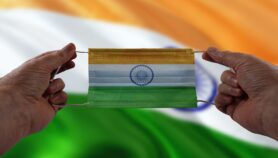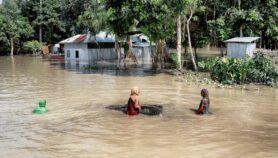By: Crispin Maslog
Send to a friend
The details you provide on this page will not be used to send unsolicited email, and will not be sold to a 3rd party. See privacy policy.
In the 40 or so years I have been teaching journalism and mass communication in Asia and the United States, the first thing I often asked my freshman students was ”Why do you want to be a journalist?”
The unfailing reply was “Because I hate math!” This has been the mantra for most of my students, especially in the days before the computer and social media. The challenge to journalists then was how to humanise stories and make readers relate to them, and we did not need statistics to do that.
All that has changed when we now talk of data revolution and big data analytics.
Age of statistics
We live today in an age of statistics, thanks to the ubiquitous computer that regularly crunches out sums, averages, percentages, probabilities, frequency, and so on. By crunching numbers through computers, the journalist can discover trends and guess the future.
Just to cite an example, sports writing has become so sophisticated and analytical that in covering a basketball game or football, the journalist needs to be familiar with the statistics of every player of every team in the league.
Indeed, we now live in a digital world in which almost everything is described with numbers. As one writer has said, the world is awash with data every time a person walks down the street with a mobile phone, or when a satellite orbits the earth, or when a product with a barcode is loaded or unloaded from a truck or a ship. [1]
This has led to data journalism. According to Aron Pilhofer of the New York Times, “Data journalism is an umbrella term that encompasses an ever-growing set of tools, techniques and approaches to storytelling. It can include everything from traditional computer-assisted reporting (using data as a ‘source’) to the most cutting edge data visualisation and news applications.” [2]
Jonathan Stray, a journalist and computer scientist who teaches computational journalism at Columbia University, adds: “Journalists have a long tradition of disdain for numbers, but that’s changing…Because our job isn’t really [just] writing. It’s analysis and communication, and getting information. That requires data literacy.” [2]
Another trend is the data revolution. This phrase was coined in May 2013 in the report of the UN High-Level Panel of Eminent Persons on the post-2015 Development Agenda. [3]
In 2014, Ban Ki-moon, the UN secretary-general, appointed an Independent Expert Advisory Group (IEAG) on Data Revolution for Sustainable Development, which defined data revolution: “An explosion in the volume of data, the speed with which data are produced, the number of producers of data, the dissemination of data, and the range of things on which there is data, coming from new technologies such as mobile phones and the ‘internet of things’, and from other sources, such as qualitative data, citizen-generated data and perceptions data. It is a growing demand for data from all parts of society.” [2]
Education and development implications
One implication of these trends is in the teaching and practice of journalism. It is time for journalists to change their bias against math and jump into the statistics bandwagon to remain relevant.
Another implication is in journalism education. We should start adapting the curriculum so students entering the field will have the skills to be conversant with numbers in order to succeed. Journalism and mass communication curricula need to include more math and statistics.
But most urgent are the implications for development. According to the UN advisory group on the data revolution: “Data are the lifeblood of decision-making and the raw material for accountability. Without high-quality data providing the right information on the right things at the right time, designing, monitoring and evaluating effective policies become almost impossible.” [3]
Related to this is the problem of the digital divide. Not everyone has access to the flood of information resulting from the data revolution. And there are still people and things about which very little is known, and these people tend to be the poorest and most marginalised.
“We don’t know, for example, how many children with disabilities are out of school. We don’t really know how many women in the poorest countries die in childbirth — what we have are estimates based on other, often quite unreliable, information. Not knowing makes it easier to ignore hardship and injustice — and even where governments or other organisations do want to act, it makes it harder to know what to do,” according to Claire Melamed of the Overseas Development Institute in the United Kingdom. [1]
To tackle this conundrum, the IEAG has proposed a World Forum on Sustainable Development Data by end of 2015 to mobilise the actions needed to make the data revolution serve sustainable development. [3]
Indeed it warned “without immediate action, gaps between developed and developing countries, between information-rich and information-poor people, and between the private and public sectors will widen, and risks of harm and abuses of human rights will grow.”
Crispin Maslog is a Manila-based consultant for the Asian Institute of Journalism and Communication. A former journalist, professor and environmental activist, he worked for the Press Foundation of Asia and the International Rice Research Institute.
This article has been produced by SciDev.Net's South-East Asia & Pacific desk.
References
[1] Claire Melamed The data revolution is coming and it will unlock the corridors of power (The Guardian, 1 October 2014)
[2] Natalie Heng Data-jitsu: Making sense out of today’s large-scale data (SciDev.Net, 9 June 2015)
[3] Independent Expert Advisory Group on a Data Revolution for Sustainable Development A World That Counts: Mobilising The Data Revolution for Sustainable Development (UN IEAG, November 2014)














